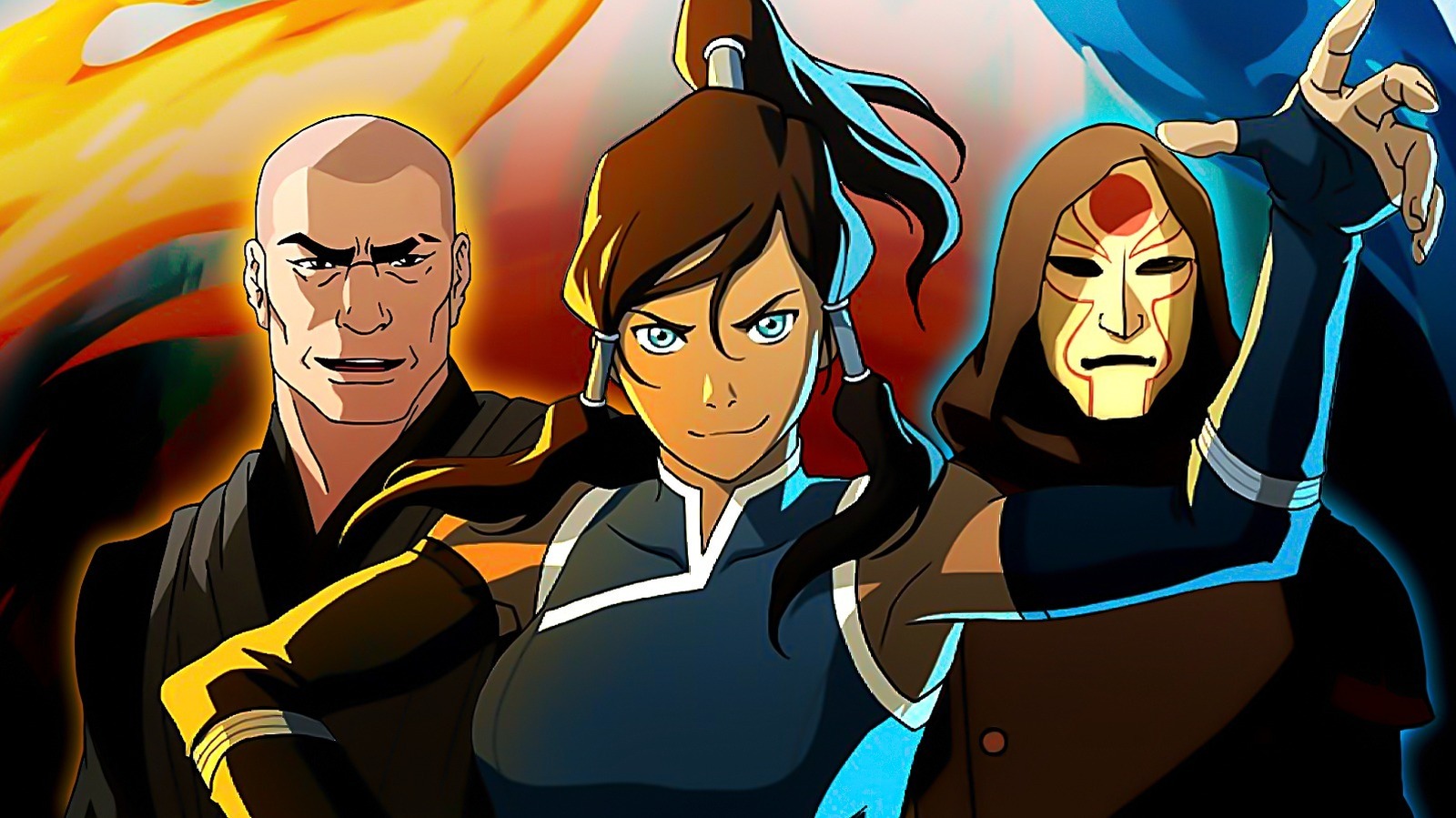
Amon and the Equalists were the first time “The Legend Of Korra” would prove to be dismissive of social movements, and unfortunately set a series trend there.
Due to his revolutionary rhetoric and goal of “equality,” Amon is sometimes described as a communist. That too would fit with the setting of “Legend of Korra,” a 1920s-esque steampunk world fresh off an industrial revolution; i.e. much like the real world conditions that brought about the development of socialist thought. An industrialized economy mixed with private ownership fuels capitalism, which needs a working class, which in turn creates the idea of transferring power to the hands of that class.
Now, Amon is certainly a populist (also noted by “Avatar” video essayist Hello Future Me) but it’s difficult to pin him down as a mirror of any real world political movements, seeing as the goal of the Equalists (the elimination of bending) is innate to the world of “Avatar.” As proof of that, some fans have argued Amon is really a fascist — he does lead his followers like a cult and their movement is built on demonizing an “other” (albeit an empowered one).
If the Equalists are meant to be communists, then that exposes either a very childish understanding of communism as just “make everyone the same!” or an imperfect allegory and, thus, solution. Taking one’s bending away, as Amon does, is spiritual mutilation, not just redistribution. Bending is part of someone’s identity, whereas wealth is a mere accumulation of resources.
These contradictions could be fun to dive into, especially since the Equalists do have valid concerns. Nonbenders are not legally second-class citizens in Republic City, but the benders do have advantages and a hold on power structures. The city’s cops and politicians are all benders, as are the skilled laborers; an Earthbender has a leg-up in construction, just as a Firebender who can bend lightning has one as an electrician, etc. A society where some people have magical powers and most don’t is a natural recipe for creating a privileged class, so how does one disentangle bending and class besides Amon’s incredibly flawed, destructive approach?
“Legend of Korra” Book 1 either doesn’t have the answers or doesn’t divulge them. This season has the series’ weakest political resolution, because in the end, it refuses to make the resolution about the politics. Amon is exposed as a liar (he’s really a self-hating Waterbender, using Bloodbending to remove people’s bending) and so his followers turn on him. That’s it. The Equalists apparently forsake all their beliefs because their leader was a hypocrite, and the inequality of Republic City is not addressed at all in the season’s conclusion.
Like Korra herself so often does, “The Legend of Korra” Book 1 bit off more than it could chew.








